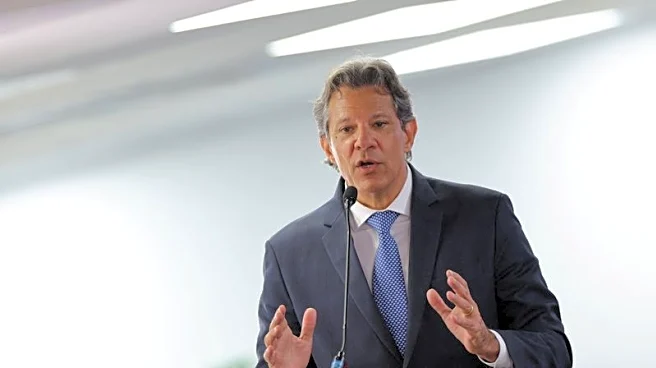Rapid Read • 8 min read
Israel and the United Arab Emirates have resumed airdrops of food into Gaza as the region faces a severe starvation crisis. The Israeli military has dropped pallets of flour, sugar, and canned food, while the UAE has pledged to ensure essential aid reaches those in need through various means. Despite these efforts, aid agencies criticize the approach as inadequate and accuse Israel of attempting to whitewash a policy of deliberate starvation. Israel has announced plans to establish humanitarian corridors to facilitate the safe movement of UN convoys delivering food and medicine, marking a shift from its previous policy of restricting UN operations in Gaza. The blockade has drawn international criticism, with images of malnourished Palestinian children circulating globally.
AD
The resumption of food airdrops in Gaza is crucial as the region faces a humanitarian crisis with widespread starvation. The blockade has severely restricted access to food and medical supplies, impacting over 2 million people. The international community, including countries like Jordan, the UK, and France, is mobilizing to provide aid, highlighting the global concern over the situation. The crisis has political implications, with countries condemning Israel's restrictions and calling for a resolution. The humanitarian efforts, while necessary, are seen as a temporary measure and underscore the need for a long-term solution to address the root causes of the crisis.
The international community is expected to continue pressuring Israel to lift the blockade and allow more comprehensive aid delivery. Countries like Germany and Spain are considering joining the airdrop efforts, and discussions are ongoing among global leaders to coordinate aid and evacuation plans. The situation remains volatile, with potential for further diplomatic tensions and humanitarian challenges. The effectiveness of airdrops will be closely monitored, and there may be calls for more sustainable solutions to ensure food security in Gaza.
The crisis in Gaza raises ethical and legal questions about the use of blockades and the responsibility of nations to prevent humanitarian disasters. The reliance on airdrops, while necessary, highlights the inefficiencies and risks associated with emergency aid delivery. The situation may prompt discussions on international humanitarian law and the obligations of countries to protect civilian populations during conflicts. Long-term shifts in regional politics and alliances could be triggered as countries respond to the crisis.
AD
More Stories You Might Enjoy










